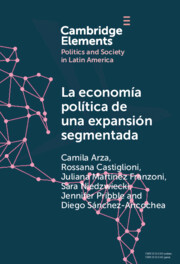This essay reviews the following works:
Cooking Technology: Transformations in Culinary Practice in Mexico and Latin America. Edited by Steffan Igor Ayora-Díaz. New York: Bloomsbury Academic, 2017. Pp. vii + 196. $39.95 paperback, $114.00 cloth. ISBN: 9781474234689.
Taste, Politics, and Identities in Mexican Food. Edited by Steffan Igor Ayora-Díaz. New York: Bloomsbury Academic, 2019. Pp. xii + 228. $42.95 paperback, $131.00 cloth. ISBN: 9781350066670.
Food and Revolution: Fighting Hunger in Nicaragua, 1960–1993. By Christiane Berth. Pittsburgh, PA: University of Pittsburgh Press, 2021. Pp. xi + 283. $50.00 cloth. ISBN: 9780822946045.
Sancocho de Mico. By Felipe Castilla Corza. Bogotá: Universidad de la Sabana, 2018. Pp. 82. $13.68 paper. ISBN 9789581204458.
Hungry for Revolution: The Politics of Food and the Making of Modern Chile. By Joshua Frens-String. Oakland: University of California Press, 2021. Pp. ix–xiv + 322. $34.95 paperback, $85 cloth. ISBN: 9780520343375.
Gastropolitics and the Specter of Race: Stories of Capital, Culture, and Coloniality in Peru. By María Elena García. Oakland: University of California Press, 2021. $30 paper, $85 cloth. Pp. ix + 320. ISBN: 9780520301900.
Food in Cuba: The Pursuit of a Decent Meal. By Hanna Garth. Stanford, CA: Stanford University Press, 2020. Pp. ix + 232. $26 paperback, $105 cloth. ISBN: 9781503611092.
Care of the Species: Races of Corn and the Science of Plant Biodiversity. By John Hartigan Jr. Minneapolis: University of Minnesota Press, 2017. Pp. xxviii + 346. $27.00 paperback, $108.00 cloth. ISBN: 9780816685356.
Eating Puerto Rico: A History of Food, Culture, and Identity. By Cruz Miguel Ortíz Cuadra. Chapel Hill: University of North Carolina Press, 2013. Pp. xvi + 388. $40 paperback. ISBN: 9781469608822.
The Neoliberal Diet: Healthy Profits, Unhealthy People. By Gerardo Otero. Translated by Russ Davidson. Austin: University of Texas Press, 2018. Pp. xvi + 256. $34.95 paperback. ISBN: 9781477316986.
Rice in the Time of Sugar: The Political Economy of Food in Cuba. By Louis A. Pérez Jr. Chapel Hill: University of North Carolina Press, 2019. Pp. xii-xiv + 264. $35.50 paperback, $99 cloth. ISBN: 9781469651422.
Substance and Seduction: Ingested Commodities in Early Modern Mesoamerica. Edited by Stacey Schwartzkopf and Kathryn E. Sampeck. Austin: University of Texas Press, 2017. Pp. xvii + 220. $27.95 paperback. ISBN: 9781477313879.
Quinoa: Food Politics and Agrarian Life in the Andean Highlands. By Linda J. Seligmann. Urbana: University of Illinois Press, 2023. Pp. xvi + 201. $25 paperback. ISBN: 9780252086885.
Buying into the Regime: Grapes and Consumption in Cold War Chile and the United States. By Heidi Tinsman. Durham, NC: Duke University Press, 2014. Pp. xi + 363. $29.95 paperback, $104.95 cloth. ISBN: 9780822355359.
Migrant Marketplaces: Food and Italians in North and South America. By Elizabeth Zanoni. Champaign: University of Illinois Press, 2018. Pp. xii + 273. $32.00 paperback. ISBN: 9780252083297.
